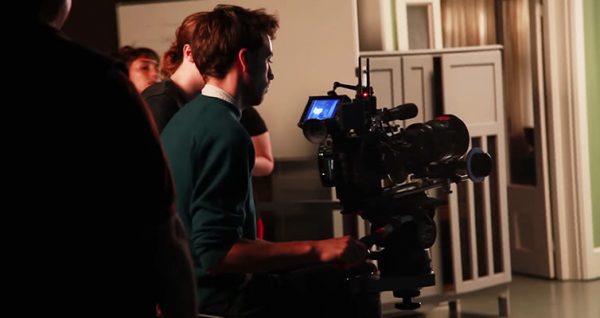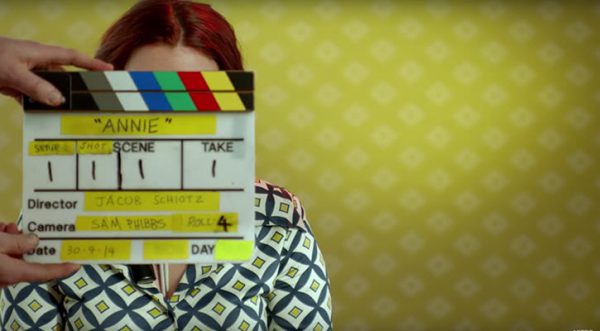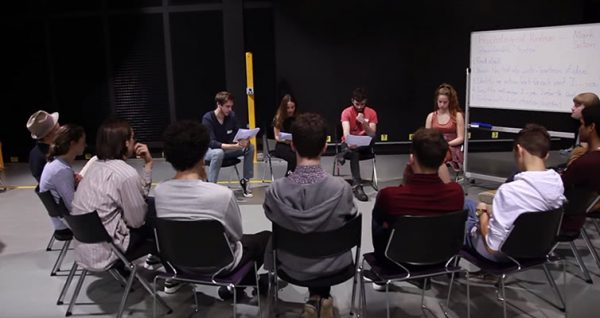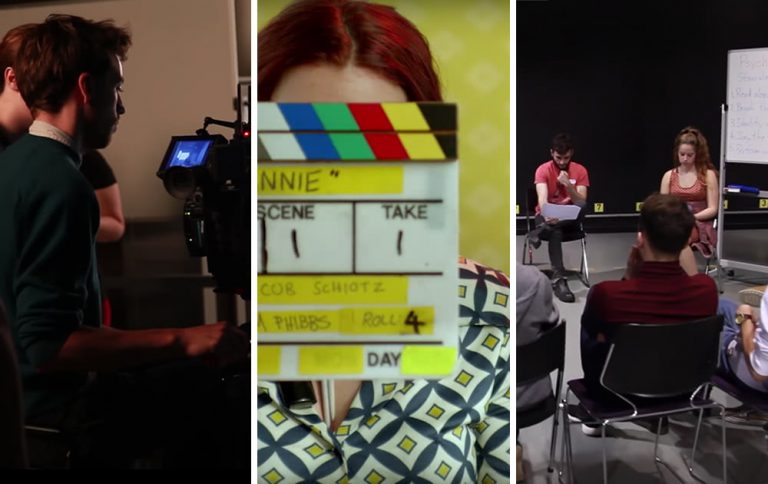If summer is your favourite time of year, there’s a good chance that it’s not just because of the long days, warm nights, and the shenanigans you get up to with your mates.
The arrival of summer reminds us that a new year is just around the corner and many of us start thinking about what we want to achieve over the next 12 months.
When deciding on goals for the year, people everywhere look into education to expand their skillset and/or switch careers. A career in Film, TV and Digital Media is a popular choice, but can be very overwhelming to navigate when deciding where to start.

To help you figure out how you want to enter the industry, we asked experts from across the media landscape for their best advice on pursuing work in media as a starry-eyed potential student.
All of the experts we spoke to teach at the Australian Film TV and Radio School (AFTRS) and are participating in AFTRS Summer Intensives programme which runs from November to the end of February 2019. All courses across the Summer Intensives series are designed so that no matter what level of experience you have, you’ll walk away with a boosted skill set in around 5 days. We bet you’ll make a bunch of new friends, too.

Love Music?
Get your daily dose of metal, rock, indie, pop, and everything else in between.
Media Companies Use All Sorts of Skills
One of the new skills that are being demanded across the screen and broadcast industry is that of the Digital Producer. These are the people who pull together the apps, websites and other digital elements that you might interact with when watching a TV show.
Lynette Reeves who teaches
the Digital Producer Summer Intensive 5 day course at AFTRS says that the job can quickly be learned by those who are keen. “For starters, you don’t need to be able to write code,” says Reeves. “You just need to be able to pick up the terminology, and most of all you need to be able to communicate with people and get a message across.”
She went on to tell us that learning UX (User Experience) is one of the most valuable things you can do. “We all interact with screens every day and every kind of media company are desperate for people who understand the experience that internet users are having.”

Let Your Passion Shine Through.
We’ve all knocked out some video on our phones and shared it with friends. But what if you’ve got a burning passion to tell a story or make a film. Where do you start? Understanding how to get your ideas into a script is a great first step.
Holly Lyons is a screenwriter with over 20 years’ experience. As part of her TV Intensive course, she encourages want to be scriptwriters to “let your passion shine through.” She says that too many writers forget to allow their passion for a story to really shine through. “This can be especially important when you are trying to get others involved with the project,” she told us.
What Are You Waiting For… Just Start.
Thomas Wilson White who teaches the Film Making Intensive has a similar message. “If making a film is what you want to do then don’t wait, start today! It’s easy to question if you really have it in you to make a film and tell your story, but really all you have to do is start.”
“You’ll soon find that you’ll attract the help of people that can help you complete your film. I usually keep in contact with the students who have been through my courses and lots of them go on to help each other with projects after meeting on a course.”

Comedy Adds Light and Shade.
Returning to the idea of scrip writing again for a moment, comedy legend Tim Ferguson, who leads an almost always sold-out Narrative Comedy course at AFTRS, reminded us that comedy is the other side of the ‘two sides of drama’. However, it’s often left out by writers because they don’t know how to tackle it.
“Comedy writing can be learned,” he said. “It’s a craft as much as an art, and including it in your work will give it the light and shade that it needs to achieve a connection with an audience.
If You Have a Passion, Media, Film & TV has a place for you.
The Summer Intensives courses at AFTRS cover an amazingly wide range of skills. In addition to the experts, we spoke to this set of courses gives you access to experts across Shooting, Editing and Uploading Video, Radio Studio Skills, Prop Making and Scenic Arts.
For those of you who fancy a role in front of the camera or microphone, there are even courses in TV Presenting and Radio Announcing.


































